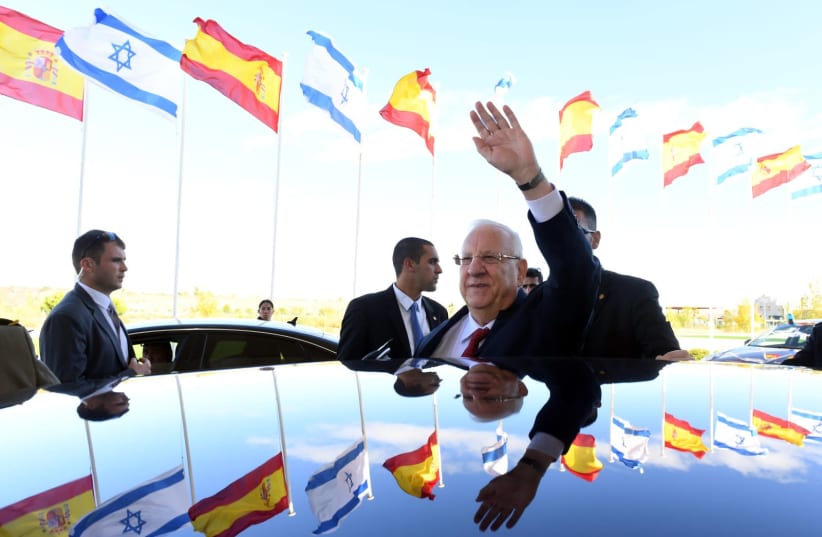In an event marking the close relations between Israel and Spain, medical experts from both countries came together on Monday in a special event dedicated to Israel's successful vaccination campaign.The online event was hosted by the Spanish Senate's Health and Consumer Commission and organized by ELNET, a nonprofit dedicated to strengthening Europe-Israel relations, together with the Embassy of Israel in Spain. The Israeli representative chosen to participate in the event was Prof. Ran Balicer, Chief Innovation Officer at Clalit and chairman of the Israeli national advisory experts’ team on COVID-19.Balicer presented Israel's strategy for implementing its nationwide vaccination campaign, noting that "Israel's case is unique" due to its young age, small size and health system, making thing easier logistically."Comparison to any European country is unfair in terms of numbers. We are very used to providing community care, so the opening of vaccination centers has been easy for us. Everyone here can easily register for a vaccination over their mobiles," Balicer explained, noting that low-tech registrations options are available for the elder population if necessary.REGARDING THE threat of dangerous new variants of the virus being introduced in Israel, Balicer noted that while variants are usually more violent, the fact that Israel has provided eight million doses of the vaccine, with three million people "fully protected according to our studies," means that Israel is seeing a massive decline in severe illness rates and that variants are inherently less effective.According to Balicer, "Herd immunity will only happen when the vast majority is vaccinated," and that cannot happen until children can be vaccinated. "We will only be able to do it once we know it’s safe, so it will take months to get to herd immunity," he said.During the event, Balicer's comments received praise from across the Spanish political spectrum.President of Spain's Health and Consumer Commission, Rosa Romero-Sanchez, stressed the importance of the event, noting that "Israel and Spain have a long history of close relations."MP Elvira Velasco noted that Israel's success in handling the distribution of coronavirus vaccines was due to its "highly digitized system," a comment which Balicer agreed with, noting that the Israeli Health Ministry's app is "not obligatory, but people find [it] very effective."But perhaps the thing that served Israel's national endeavor the most was its close work with local authorities and leaders in order to reach everyone."We have paid much attention to special populations, working closely with community leaders," Balicer said, "so whenever they are supportive, the entire community is willing to align."This strategy is what allowed Israel to tackle the challenges of vaccinating the ultra-orthodox and Arab communities in the country, he said.Balicer concluded the event by laying out what he considered to be the "recipe" for successfully tackling the pandemic at this stage, saying that the three key ingredients include gaining control of the logistical chain of vaccinations; having direct access to the public and maintaining transparency; and continuously promoting vaccination in disenfranchised communities.Shai Bazak, CEO of ELNET, expressed hope that this event and sharing of knowledge will become a standard in European-Israel relations and will serve as a stepping stone for future collaborations."The open conversation Israel is having with Europe reflects the great potential for closer cooperation and expertise, both for Europe and for Israel, and we are pleased to see the huge interest in Israel's expertise in the corona vaccine campaign," he said.
Israel, Spain share knowledge on COVID vaccine, marking close relations
The event was hosted by the Spanish Senate's Health and Consumer Commission and organized by ELNET, a nonprofit dedicated to strengthening Europe-Israel relations.
